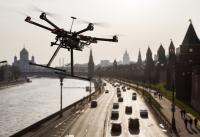Research
The Centre's work is organized around six Research Dimensions. Each dimension represents a programme of study exploring a major area of technological development.

Cyber Studies
Cyberspace permeates almost all other domains of human activity. It envelops distributed systems such as the cloud, industrial controller systems, public and private health systems, and so on. Researchers working in this area examine the consequences of cyber technology for political and social affairs - including the disruptive and empowering effects of "e-democracy" practices, online voting implications, and the potential role of "virtual reality" technology in assisting government officials and private industry in modelling and understanding social behaviour that affects society positively or negatively.

Artificial Intelligence
The impact of Artificial Intelligence and machine learning on societies, governments, and international affairs is an important area of research. This work involves analysis of the implications of powerful predictive and prescriptive algorithms for human wellbeing and for economic and governmental security; exploration of machine learning applications (based on Big Data resources) that enhance the decision-making processes of people and organizations; and studies of the use of large data sources to support policy and industry at various levels. We seek to understand how these developments affect social order and the functions of politics.

Robotics
Advances in robotics promise to reshape important aspects of international affairs and domestic society. On the international plane, the application of UAVs and other robots in tactical operations avoids exposing human operators to harm. It may enhance force protection and assist patrols in multinational peacekeeping operations. But tactical robots also raise major policy, legal, and doctrinal questions. On the domestic plane, autonomous robots herald a transformation of labour markets, welfare practices, urban planning, and transportation networks. Other potentially transforming uses of the technology include the improvement of surveillance during a public or natural emergency. The moral and political ramifications of these developments are essential to present and future policy plans.

Blockchain
Blockchain, or distributed ledger technology, represents a major innovation in the development of information technology. Its growing application in government, the economy, and society is transforming the medium by which value - of all kinds - is exchanged across the globe. It has given rise to the so-called Internet of Value. We analyze the use of distributed ledger technology to support government functions, social welfare, and financial systems.

Outer Space
States have operated in outer space for almost sixty years. New nations are entering this arena - China, India, Japan, and others. No less important, the field of relevant players increasingly includes private actors. The expansion of the role of the private sector (especially aircraft manufacturers) in space may have significant implications for political, social, and economic affairs. It may revolutionize space travel and Internet communications. Moreover, the ongoing development of mass-scale Earth observation satellites augurs a new era of space-based surveillance and data science - and with it important questions about policy implications.

Nuclear Issues
Nuclear technology is both old and new. It is old insofar as it involves an established technology of war among powerful nations vying for security. And it has been a common source of civilian energy for several decades. But the technology is also new in as much as non-traditional threat actors are seeking to redevelop it into unconventional weapons—for example “dirty bombs.” Moreover, there are ongoing debates about the potential benefits of new civilian applications of nuclear power, such as in space propulsion.



